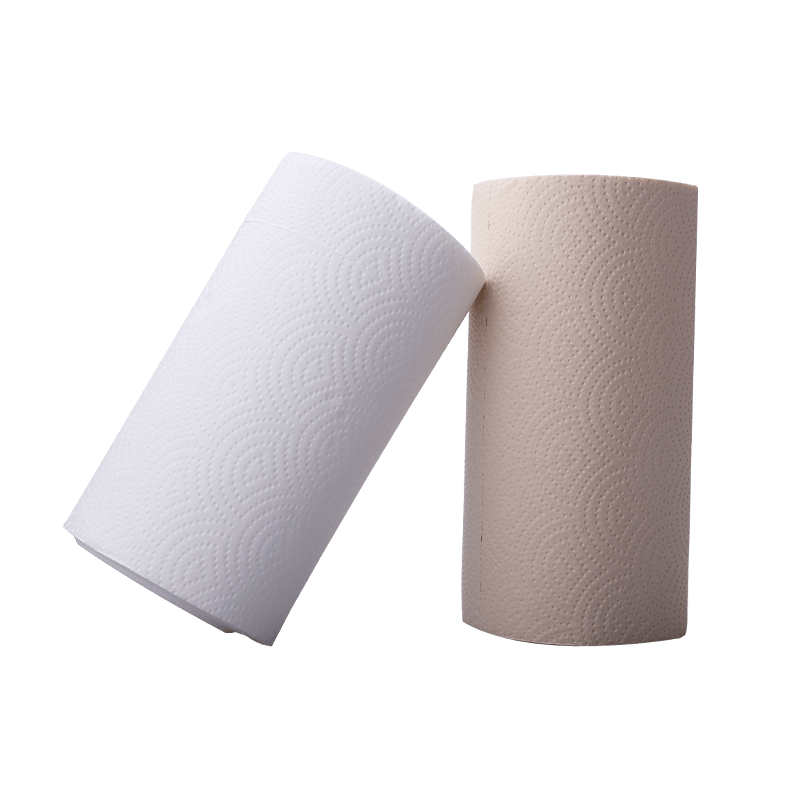Bamboo Kitchen Towels vs. Regular Kitchen Paper Towels: Which Ones to Choose
Bamboo kitchen towels have gained popularity as an eco-friendly alternative to regular paper towels. While both products serve the same purpose, cleaning and wiping messes in the kitchen, their environmental impact, durability, and performance differ significantly. In this article, we will compare bamboo kitchen towels vs. regular kitchen paper towels to help you make an informed decision based on your needs and values.
Understanding Bamboo Kitchen Towels
Bamboo kitchen towels are towels made from the fibers of the bamboo plant. These towels are typically processed through a natural or chemical process that breaks down bamboo fibers into a soft and durable fabric. The result is a reusable, biodegradable towel that serves the same purpose as traditional paper towels but with far fewer environmental impacts.
Bamboo kitchen towels can be made from 100% bamboo fibers or blended with other materials such as cotton to enhance their strength and softness. Most bamboo towels are designed to be durable and long-lasting, able to withstand multiple washes and uses, making them more sustainable in the long run compared to disposable alternatives.
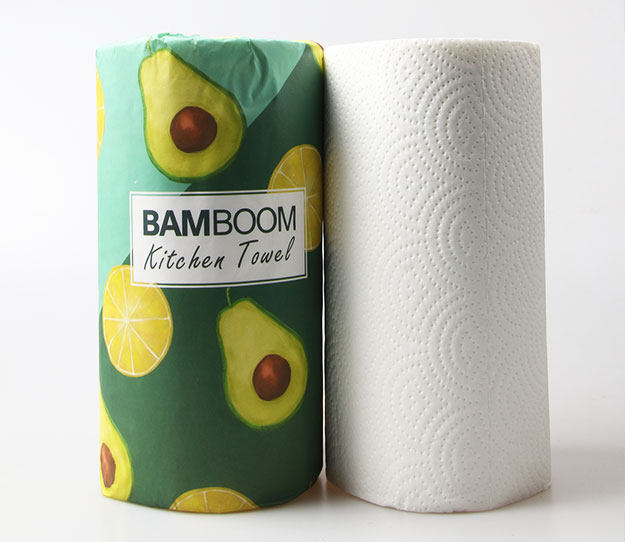
Advantages
1. Eco-Friendly and Sustainable
- Renewable Resource: Bamboo is one of the fastest-growing plants in the world, with some species growing up to 3 feet per day. This makes bamboo an incredibly renewable resource, requiring minimal resources to cultivate compared to trees used in the production of paper towels.
- Low Environmental Impact: Bamboo requires little water and no pesticides to grow. Additionally, bamboo plantations help absorb carbon dioxide and release oxygen, which contributes positively to the environment.
- Biodegradable: Bamboo towels are biodegradable, meaning they will decompose naturally over time without leaving harmful residues behind, unlike synthetic materials that can persist in landfills for centuries.
2. Reusable and Durable
One of the standout features of bamboo kitchen towels is their reusability. These towels are designed to be washed and reused many times, unlike regular paper towels, which are single-use and contribute significantly to waste. Bamboo towels can be washed multiple times without losing their absorbency or strength, making them a cost-effective choice for those looking to reduce consumption.
3. Highly Absorbent
Bamboo fibers are naturally more absorbent than many other materials, making bamboo towels highly effective for cleaning up spills, wiping countertops, and drying dishes. The fibers can hold more liquid than conventional paper towels, allowing for efficient cleaning.
4. Soft and Gentle
Bamboo towels are generally soft and gentle, making them ideal for a variety of tasks, from wiping down kitchen surfaces to drying delicate items like glassware or children’s faces. They are also hypoallergenic and gentle on the skin, which makes them a great option for households with sensitive skin.
5. Versatile Usage
Bamboo kitchen towels are versatile and can be used for various cleaning tasks in the kitchen and beyond. They can be used to clean spills, dry dishes, wipe down countertops, or even replace napkins during mealtime. Their versatility adds to their value in the home, as they can replace not only paper towels but also other disposable cleaning products.
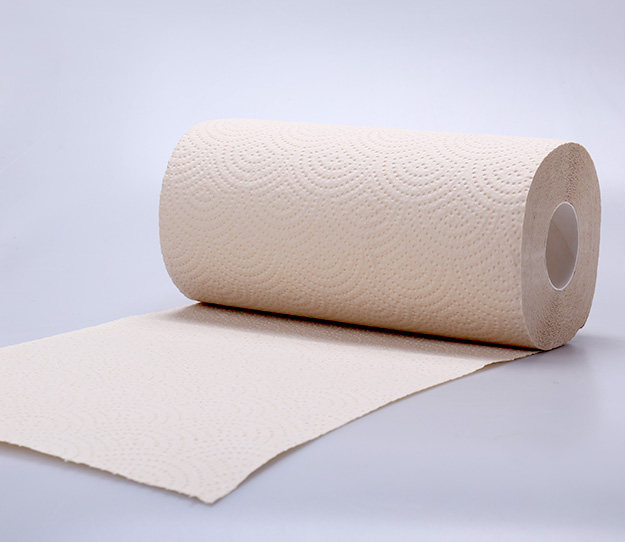
Limitations
1. Initial Cost
Bamboo kitchen towels typically come with a higher initial cost compared to regular paper towels. While paper towels are often sold in large, cost-effective packages, bamboo towels are typically priced higher per unit. However, because bamboo towels are reusable, this upfront cost is offset over time as you continue to use them instead of constantly purchasing disposable towels.
2. Maintenance and Care
- Bamboo towels require proper care to maintain their longevity. After each use, they need to be washed, which means you’ll need to factor in laundry time and resources (water, detergent, etc.). Some bamboo towels also require air drying or gentle machine drying to avoid damage, which may add to the effort required for upkeep.
- It’s important to follow manufacturer instructions for washing and drying to preserve their softness and durability.
3. Texture Variations
Bamboo towels may have a different texture than traditional cotton or synthetic towels, particularly when they are new. Some users might find the texture slightly coarse or less plush than what they are used to with cotton towels, though this usually softens after several washes.
4. Limited Availability
While bamboo kitchen towels are becoming more widely available, they are still not as prevalent as traditional paper towels in all stores. Consumers may need to visit specialty retailers or shop online to find bamboo towels, which can be less convenient compared to purchasing paper towels at a local supermarket.
5. Chemical Processing
Some bamboo towels undergo chemical processing to transform bamboo fibers into fabric. While this process is less harmful than traditional textile manufacturing methods, some lower-quality bamboo towels may still involve excessive chemical treatments. It’s important to look for brands that use eco-friendly methods to ensure the towels are as sustainable as possible.
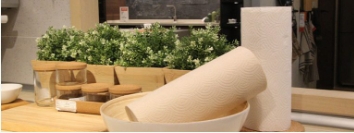
Understanding Regular Kitchen Paper Towels
Regular kitchen paper towels are disposable towels made primarily from wood pulp, which is processed into thin sheets of paper. These towels are designed for single-use and are typically perforated to create easy-to-tear sheets. They are sold in rolls, similar to toilet paper, and are commonly found in kitchens, bathrooms, and other areas of the home or business that require quick cleanup.
The manufacturing process for paper towels often involves bleaching, pulping, and pressing wood fibers to create a soft, absorbent sheet. Some paper towels may also contain recycled materials or be labeled as “eco-friendly,” although many traditional options are made from virgin wood pulp.
Advantages
1. Convenience and Ease of Use
- Single-Use: Paper towels are incredibly convenient for one-time tasks. After use, they can be disposed of without the need for washing or reusing. This makes them especially useful for cleaning up large spills, wiping surfaces, or handling messy tasks where a reusable option may be impractical.
- No Maintenance: Unlike reusable towels or cloths, paper towels don’t require any maintenance. You can simply grab a sheet and use it, which makes them ideal for quick jobs or when you don’t want to worry about cleaning towels after every use.
2. Highly Absorbent
Paper towels are designed to be absorbent, allowing them to soak up liquids, oils, and spills with ease. The fibers used in paper towels are often highly absorbent, allowing them to perform well in a variety of cleanup tasks, such as wiping down counters, cleaning up wet spills, or drying dishes.
3. Hygienic and Disposable
- No Cross-Contamination: Because they are disposable, paper towels eliminate the risk of cross-contamination that can occur when using reusable cloths or sponges, which can harbor bacteria if not washed regularly.
- Fresh, Clean Use: Each new sheet of paper towel provides a fresh, clean surface, reducing the chances of bacteria or germs being spread during cleanup. This makes paper towels particularly useful in areas where cleanliness is a top priority, like in kitchens and bathrooms.
4. Versatile Applications
Paper towels can be used for a wide range of tasks, from wiping down surfaces and cleaning glass to handling greasy pots and pans or drying hands after washing. They are versatile and serve many purposes in both residential and commercial settings.
5. Widely Available and Affordable
Paper towels are sold everywhere, from grocery stores to large retail outlets and are typically affordable, with various brands and price points to suit different budgets. Because they are so common, they are also easy to find, making them a convenient choice for most people.
Limitations
- Environmental Impact
- Deforestation: One of the most significant concerns about regular kitchen paper towels is their environmental impact. The production of paper towels contributes to deforestation, as they are primarily made from wood pulp, which often comes from trees. While some brands use recycled materials, many paper towels still rely on virgin wood pulp, which strains natural resources.
- Waste Generation: Since paper towels are designed for single-use, they contribute to significant waste. After a paper towel is used, it is typically discarded, adding to landfill waste. The average household goes through multiple rolls of paper towels each month, contributing to a growing waste problem.
- Energy and Water Consumption: The manufacturing process for paper towels requires a considerable amount of energy and water. Pulping, bleaching, and pressing wood fibers consume resources and produce carbon emissions, which have a negative environmental impact.
2. Non-Reusable
Unlike bamboo towels or cloth napkins, regular paper towels are not designed for reuse. After a single use, they are typically thrown away. While some people may try to reuse paper towels by allowing them to dry out after cleaning a surface, most are designed for one-time use only.
3. Cost Over Time
- Although paper towels are relatively cheap upfront, their repeated use can add up over time. For households or businesses that rely heavily on disposable paper towels, the cost of purchasing new rolls regularly can accumulate significantly over the course of a year.
- Additionally, some brands of paper towels are designed to be thicker and more absorbent, which may increase the price. While this may enhance performance, it further increases the long-term cost of using them regularly.
4. Chemical Processing
- Many paper towels are made using bleach and other chemicals to process the wood pulp and make the fibers white and soft. These chemicals can be harmful to the environment when they are released during manufacturing or when paper towels break down in landfills.
- Though some brands offer unbleached or chlorine-free options, many regular paper towels still rely on chemical processing to achieve their final product.
5. Limited Strength for Heavy-Duty Cleaning
While paper towels are excellent for quick cleanups and drying tasks, they can be less effective for heavy-duty cleaning jobs, especially those that involve scrubbing or soaking up large amounts of liquid. The paper can tear easily when used for tougher tasks, limiting its functionality for more demanding cleaning projects.
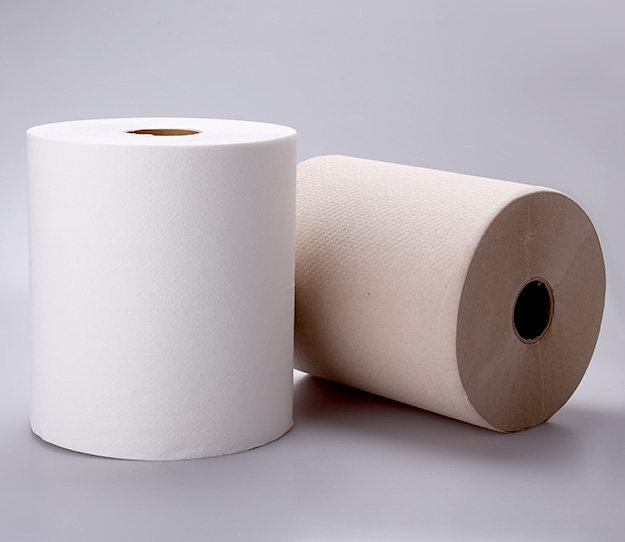
Key Differences Between Bamboo Kitchen Towels vs. Regular Kitchen Paper Towels
This comparison chart should give you a clear understanding of the main differences between bamboo kitchen towels and regular paper towels in terms of their environmental impact, durability, cost, and usage.
| Feature | Bamboo Kitchen Towels | Regular Kitchen Paper Towels |
| Material | Made from bamboo fibers, often blended with cotton. | Made primarily from wood pulp (virgin or recycled). |
| Sustainability | Highly sustainable; bamboo is a renewable resource. | Less sustainable; made from trees, contributing to deforestation. |
| Environmental Impact | Biodegradable and compostable. | Contributes to waste and deforestation; not biodegradable unless specifically designed. |
| Reusability | Can be reused multiple times before washing. | Single-use only; disposed of after use. |
| Absorbency | Highly absorbent and effective for cleaning. | Also absorbent but may not last as long per sheet. |
| Softness | Soft and gentle on skin; good for delicate surfaces. | Soft but may become rough after use. |
| Hygienic | Can be washed and reused, preventing cross-contamination. | Single-use nature makes it hygienic but generates waste. |
| Durability | Durable, long-lasting if properly maintained. | Can tear easily when wet or used for heavy-duty cleaning. |
| Cost | Higher upfront cost, but more cost-effective in the long run. | Lower initial cost, but recurring expenses due to frequent purchase. |
| Maintenance | Requires washing after each use. | No maintenance required; disposable after use. |
| Availability | May require special stores or online shopping. | Widely available in most supermarkets and stores. |
| Texture | Can feel slightly coarse initially but softens over time. | Soft but can become rougher with use. |
| Cleaning Power | Good for a variety of tasks, highly absorbent. | Effective for quick tasks but not suitable for heavy-duty cleaning. |
| Chemical Processing | Typically processed with fewer chemicals (depending on brand). | Often processed with chemicals like bleach and chlorine. |

Choosing Between Bamboo Kitchen Towels vs. Regular Kitchen Paper Towels
- Environmental Sustainability
Bamboo kitchen towels are crafted from bamboo, a renewable and fast-growing plant that requires fewer resources to cultivate. They are biodegradable and reusable, contributing less to landfill waste. In contrast, regular kitchen paper towels are made from wood pulp, often involving deforestation and chemical processing. These are single-use products that add significantly to household waste. If sustainability is a priority, bamboo towels clearly offer an eco-friendlier solution.
- Cost and Long-Term Value
While bamboo towels may seem more expensive initially, their reusable nature makes them more cost-effective over time. A single bamboo towel can often replace dozens of rolls of paper towels. Regular paper towels, though cheaper per roll, involve continuous repurchasing, making them more costly in the long run for regular users.
- Convenience and Maintenance
Convenience is where regular paper towels excel—they’re disposable, require no maintenance, and are ideal for quick, mess-free tasks. Bamboo towels, on the other hand, need to be washed and dried after use, which may not be suitable for those with busy lifestyles or limited access to laundry facilities. If hassle-free cleanup is essential, paper towels may be the better choice.
- Durability and Performance
Bamboo kitchen towels are typically stronger and more durable than regular paper towels. They are less likely to tear when wet and can handle tougher cleaning tasks. Their absorbency is also superior, making them more efficient for spills and scrubbing. Regular paper towels, while absorbent, can break apart during heavy-duty cleaning, especially when wet.
- Hygiene and Cleanliness
Paper towels are single-use and can be discarded immediately after cleaning potentially contaminated surfaces, reducing the risk of bacterial transfer. Bamboo towels, although washable, must be cleaned properly and dried between uses to remain hygienic. In environments where hygiene is critical, like handling raw meat, disposable paper towels may be more appropriate.
- Availability and Accessibility
Regular kitchen paper towels are widely available in supermarkets, convenience stores, and online, making them easy to replace. Bamboo towels, however, may be found only in eco-focused shops or online platforms, which could be a limiting factor for some consumers.
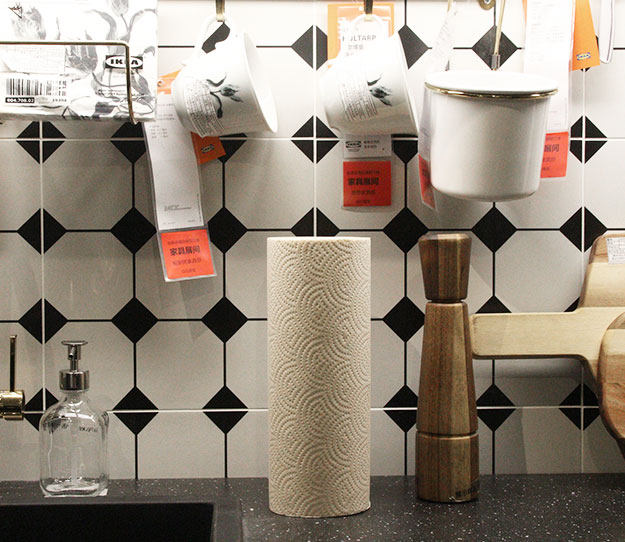
Summary
- Choose bamboo kitchen towels if you are looking for an eco-friendly, sustainable option that helps reduce waste and can be reused multiple times. Bamboo towels are a great choice for households that want to minimize their environmental footprint without sacrificing performance.
- Choose regular kitchen paper towels if you prioritize convenience and don’t mind the ongoing cost and waste associated with single-use items. While they are not as sustainable as bamboo towels, paper towels are readily available, affordable, and effective for quick cleanups.
Final Thoughts
Bamboo kitchen towels offer a more sustainable long-term solution, whereas regular paper towels are convenient but come with greater environmental costs. Through making a thoughtful choice, you can help reduce waste and contribute to a more eco-friendly lifestyle.

